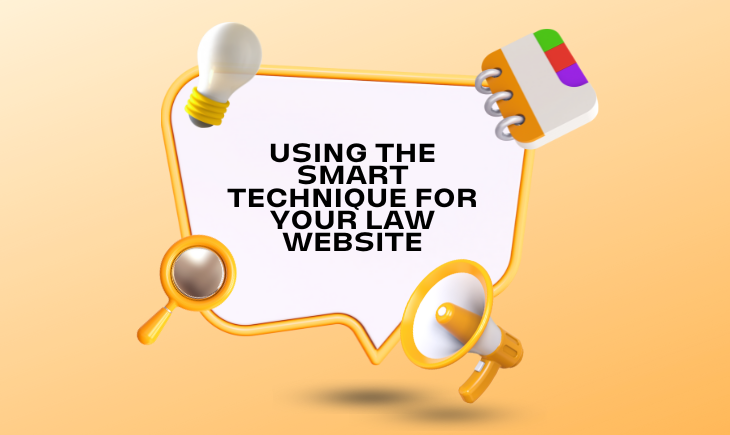The SMART technique is a popular goal-setting framework that ensures your objectives are Specific, Measurable, Achievable, Relevant, and Time-Bound. Using SMART in your personal injury law firm’s digital marketing strategy can help define clear, actionable goals and assess progress effectively. Here’s how you can apply each component.
1. Specific (S)
Goals must be clear and well-defined. Vague or generalized goals are not all that helpful because they provide no direction. Please specify what you want to achieve, how you plan to do it and determine the reasons behind these objectives. For instance, instead of stating, “I want to attract more clients,” a specific goal could be, “I want to increase website inquiries from potential clients by 20% over the next quarter through SEO and content marketing.”
2. Measurable (M)
Goals should have criteria for measuring progress. This allows you to track your achievements and make necessary adjustments. In digital marketing, this could involve tracking website traffic, form inquiries, social media engagement, or email open rates. Using the previous example, measuring the increase in website inquiries will provide a clear metric to assess success.
3. Achievable (A)
Goals need to be realistic and attainable. They should stretch your capabilities but remain possible. Setting too lofty or unattainable goals can lead to disappointment and a lack of motivation. When setting goals, consider the resources (e.g., budget, team skills, time) and ensure that your goals are feasible within these constraints.
4. Relevant (R)
Your goals should align with the broader objectives of your law firm. They should contribute to the firm’s mission and vision. For instance, if your law firm specializes in family law, your digital marketing efforts should focus on reaching individuals dealing with divorce, child custody issues, etc., rather than trying to reach a more general audience.
5. Time-Bound (T)
Goals need a deadline. The time frame creates a sense of urgency and provides a benchmark against which you can assess progress. Whether your deadline is a month or a year, having a time-bound goal will help keep everyone focused and motivated.
Example of Using SMART
Using the SMART technique to craft a digital marketing strategy for a law firm might look something like this:
Specific
Increase website inquiries from potential clients by 20%.
Measurable
Track the number of website inquiries received.
Achievable
Use SEO optimization and regular content updates to increase visibility and engagement, ensuring the team’s skills and budget are adequate.
Relevant
Focus on attracting clients needing legal representation in family law matters.
Time-Bound
Achieve the target within the next quarter.
Conclusion
By setting SMART goals, your law firm will have a clear direction for its digital marketing efforts. Each step will bring you much closer to your objectives, and by consistently reviewing and updating these goals, you can ensure that your strategy remains effective and responsive to changes in the digital marketing landscape.
If you need more help in digital marketing, Victory Law Marketing offers services in everything from website design to law search engine optimization to social media management. Contact us today at (949) 800-6990 or (310) 341-3939.






